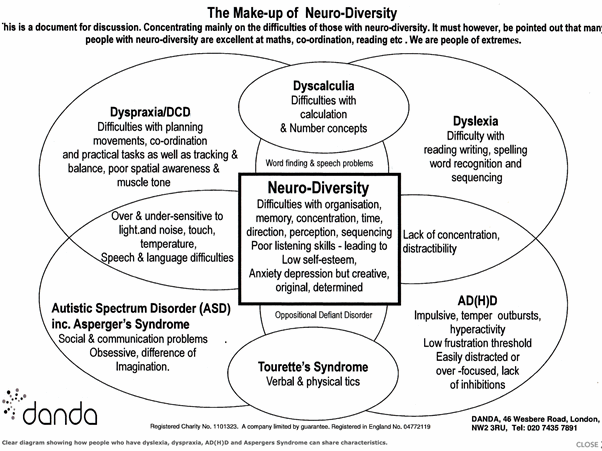
The challenges of recruiting and employing neurodivergent individuals
Hanover recently spoke with Group Human Resources Director, Ian Iceton, who has spent the last five years researching a Doctorate at Cranfield University on Autism in the Workplace. Ian has considerable insight and value to add in this area, thanks to his expertise and his passion for diversity and inclusion.
During the webinar, which was organised by one of Hanover’s Partners, Christina Ratings, a champion of equality in the workforce who helps clients achieve their D&I policy, we asked Ian about the recruitment of neurodivergent individuals and what challenges may arise in the process, as well as how to overcome these challenges.
We uncovered three key learning points that would be valuable to you as a leader of an organisation, working in a man-management or HR capacity. These are as follows:
- Neurodiversity is often invisible and uncomfortable to deal with.
- Navigating the topic of diversity and, increasingly, neurodiversity can be difficult. That is why we need to develop our knowledge and skills in this area if we are to encourage rich, diverse and more profitable organisations.
- As an organisation, you should ask yourself if you have really made people feel included in order to get the best out of them as employees. This thinking applies to all employees, regardless of neurodiversity.
What is neurodiversity?
- Autism and Aspergers (Autism Spectrum disorders)
- ADHD
- Dyslexia
- Dysplasia
There are certain personality traits common to people who experience these conditions, and although it’s dangerous to stereotype, there are benefits to appreciating some of these common traits. Understanding these traits also allows organisations and hiring personnel to explore the unique skills and opportunities they present. For example, those with neurodivergent symptoms are often challenged when it comes to listening and communication skills, which are of course crucial components of the recruitment and interview process. Employers should take care to observe such traits, further information about which can be found below.
What benefits are there to recruiting neurodivergent individuals?
As well as reaping the benefits from diversity and inclusion within your business, such as a range of different thinkers and a more dynamic environment, neurodivergent individuals also offer attractive skillsets bound to bring prosperity.
Again, while it’s dangerous to stereotype, common types of skills (to name but a few) that can be harnessed in neurodivergent people are:
- Creative thinking
- Visual thinking
- Fine detail processing
- Sequencing
- Innovation
- Energy and passion
Research shows that between 10% and 15% of the workforce has one or more neurodiverse conditions, with individuals often experiencing more than one element at a time. Unfortunately, a much lower proportion of these people are in employment. For example, the National Autistic Society in the UK estimates only 16% of autistic adults vs 66% of the rest of the adult population are in full-time employment.
Previous research has also shown that those neurodiverse people in employment experience higher levels of stress, often related to the challenges they face.
How can employers support neurodiverse candidates and employees?
First and foremost, it is important to think carefully about how job specifications and role profiles are written, so they do not exclude people unnecessarily. An autistic person thinks very literally – if they don’t have all the skills listed they won’t apply (often a women will more likely discount herself, rather than a man, even if they have the same skill level), when perhaps they have all the ‘essential skills’ to perform the role to a very high degree.
Other important things to think about during the recruitment process are:
- The language, terminology, font, colour, size, and style of ads
- The selection criteria and processes, taking care to make them as inclusive as possible
- Making candidates aware of your support towards applicants who are neurodiverse
- Training recruiting managers to carefully manage neurodiverse applicants
- Where possible, providing information in advance that may help reduce stress levels – this could include things like locations, links to trial technology, and guidance on how to use video technology
- Not all roles require people to think on their feet and make difficult decisions quickly
Traps and habits to avoid when recruiting
During the recruitment process, in order to make inclusive allowances for neurodivergent individuals, it’s important to avoid falling into the below traps and bad habits.
– Having requirements that are not always necessary, i.e. “interpersonal skills essential”, “must be a team player”. We think we want these; however, some jobs really don’t need these skills at all.
– Maintaining entrenched opinions and expectations around personality types. Have these expectations been built into your selection processes which are unfounded, perhaps based on team or previous bias?
– Recruiting for certain past experiences that may not be available to all, rather than completing a skill-based search with the intention to train further.
– Using lazy HR questions that could be very challenging for a neurodivergent person, such as asking, “What will you be doing in five years?” Taken literally as a neurodivergent person would, their answer could well be, “I haven’t a clue”.
You can overcome these bad habits by focusing on the exact criteria that needs to be met. Discuss the role and process with your recruiting partner and keep only the essential traits, eliminating those that are unnecessary.
Remembering that with guidance and training, these types of individuals will flourish, stay with your organisation longer, and create a more enriching environment. Furthermore, remember the literal thinking often exhibited by these individuals and tailor your questions to suit. Often, these questions are used as a proxy for something else, so let them know what it is you really want to know and understand that the interpretation of the question could be entirely different.
Time invested in doing this will pay dividends in the long run.
Suggestions for recruiting neurodiverse people
During our webinar, Ian offered valuable insight into his top tips for recruiting neurodivergent individuals:
- Use relevant software to make the wording of ads less gender-specific, as you could be putting people off without realising it. This is generally good practice.
- Are there technical tests that could be used instead of an assessment from a CV?
- Have you considered a psychoanalytical assessment instead of a psychometric test?
- Could there be a problem-solving question set prior to the interview?
- Don’t exclude candidates because their CV has gaps or is missing non-essential items. There could well be a good reason for this.
- Neurodivergent people think of themselves as different – is there anything about your recruitment process that they might need to consider in your application process?
- Have you asked if a candidate needs any special arrangements for the interview?
- The logistics of the interview, e.g. providing a photo of the building or the interviewee could be massively helpful. Just by doing this you are less likely to exclude great people before you have got the chance to meet them.
- If you’re in a video interviewing scenario – explanation of how to use the tech could prevent stress.
- Knowledge that eye contact could be difficult for that individual. If they are not customer facing, does this matter? It might make you feel uncomfortable, but it might not reflect on their capability to perform the role.
- Train your recruiters in what they need to look for and what they need to know.
- Train your interviewers to deal with thinking pausing and deliberate pauses. Autistic people need time to process and think about the response, to ensure it’s the best it can be.
How can your business make employment easier for neurodiverse individuals?
1. Train line managers
Train line managers to be aware, to ask the right questions, and manage the needs of the employees appropriately.
2. Open company culture
Create an inclusive, supportive culture with open communication covering relevant points, such as why an employee might have different working hours or need different tools or a modified environment in which to perform their role effectively. This will allow all employees to flourish as well as promote loyalty.
3. Performance management criteria
These criteria are often designed in a way that creates bias across certain groups, such as interpersonal skills. Ensure that managers are trained to understanded how to assess this.
4. Provide mental health first aid
Make additional support known and available. By making people’s lives better, people perform better. We need to understand that neurodivergent doesn’t mean neuro-deficient.
5. Pursue feedback
There are sensory challenges that a brightly lit open office may present to neurodivergent individuals. To become aware of these, one must ask the questions in a comfortable, confidential environment; they can include lighting, direction of seating, sounds, smell, proximity to others, and textures. Before doing this, it’s really important that you communicate with employees that some people will be enabled to work differently as part of your inclusive employment approach, to avoid bias, judgement, and possible difficult conversations
Additional considerations
Some other things you may want to consider when recruiting neurodiverse individuals include:
- Does your leadership team understand the issue, act as champions, and communicate the right culture across your business? Has this been discussed at a leadership or board level, and if not, how this might be done?
- Are there obvious examples of neurodiverse employees on your website, in your employee or in your recruitment materials?
- Do you encourage third party experts on neurodiversity to educate and support your managers, and perhaps to mentor neurodiverse employees?
- Does your recruiting partner understand what roles and opportunities within your organisation might suit someone with these conditions and unique skills?
Areas to be aware of
Finally, these are some important issues to be aware of when you recruit and employ neurodivergent individuals:
- Non–disclosure – due to discrimination, many neurodivergent people do not disclose their situation. This can understandably present a different set of problems, but an inclusive culture is the best place to start.
- Intersectionality – research suggests that women who are neurodiverse are often less frequently diagnosed, so there may be additional stresses and strains on these women in performing their roles.
- Line manager difficulties – every person and every condition is different. Support, open communication, and the opportunity to have a mentor or coach will all support this.
- Sensory issues – many autistic employees experience a range of sensory issues often beyond those which are stereotypical. This can often be easily addressed, so be aware of potential needs.
If you would like to talk with Ian Iceton or one of the Hanover event organisers, Paul Groake (MD UK & Europe) or Christina Ratings (Partner), please get in touch. Alternatively, you can view the full recording of the webinar here.





